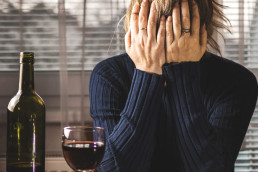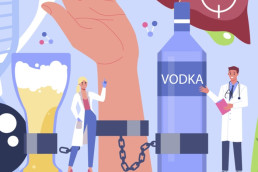Are Hangover Blackouts Normal? Understanding the Risks and Realities
Introduction
Waking up with a fragmented memory or complete amnesia of events after a night of heavy drinking can be a disconcerting experience. Commonly referred to as a ‘hangover blackout,’ this phenomenon raises important questions about alcohol consumption and its effects on memory. This article delves into what hangover blackouts are, their implications, and how to prevent them, providing crucial insights for anyone concerned about the effects of excessive drinking.
What is a Hangover Blackout?
A hangover blackout, or alcohol-induced amnesia, occurs when high levels of alcohol consumption impair the brain’s ability to form new memories. It’s important to distinguish between two types:
Fragmentary Blackouts: Often called “brownouts,” these involve partial memory loss, where you remember only bits and pieces of the night.
Enbloc Blackouts: These are more severe, characterized by a complete inability to recall a stretch of time, despite efforts to jog your memory.
Understanding the Causes
Blackouts are primarily caused by a rapid increase in blood alcohol concentration (BAC). When BAC rises quickly, it disrupts the hippocampus, the part of the brain responsible for forming new memories.
Rapid Drinking: Consuming large amounts of alcohol in a short period significantly increases the risk of a blackout.
Type of Alcohol: High-proof alcohol can raise BAC more quickly, leading to a higher blackout risk.
Individual Differences: Factors like genetics, body weight, and tolerance levels also play a role in how one’s body processes alcohol.
Are Blackouts a Sign of Alcohol Abuse?
Occasional blackouts don’t necessarily indicate alcohol addiction, but they are a sign of risky drinking behaviour. Frequent blackouts should be taken seriously as they can increase the risk of:
Physical Injury: Impaired memory and coordination can lead to accidents and injuries.
Risky Behaviors: Blackouts can result in engaging in unsafe activities, including unprotected sex or driving under the influence.
Mental Health Issues: Regular heavy drinking and blackouts can contribute to anxiety, depression, and other mental health disorders.
Prevention and Risk Reduction
The most effective way to prevent hangover blackouts is to moderate alcohol intake. Here are some practical tips:
Pace Yourself: Drink slowly and avoid rounds or drinking games.
Eat Before Drinking: Having food in your stomach slows down the absorption of alcohol.
Stay Hydrated: Alternate alcoholic drinks with water to stay hydrated and slow down your drinking pace.
Know Your Limits: Be aware of your personal limits and stick to them.
When to Seek Help
If you or someone you know experiences frequent blackouts, it may be time to evaluate your relationship with alcohol. Seeking help from a healthcare professional or a support group like Alcoholics Anonymous can be a crucial step towards healthier drinking habits or sobriety.
Conclusion
While hangover blackouts can happen to anyone who drinks too much too quickly, they are not a normal or safe aspect of alcohol consumption. Understanding the risks associated with blackouts and practising moderation can help prevent these potentially dangerous occurrences. Remember, being mindful of your drinking habits is not just about avoiding hangovers; it’s about taking care of your overall health and well-being.
May 16, 2023
What Drugs are your Kids Taking?
n today’s fast-paced and increasingly complex world, the issue of drug use among teenagers and young adults is a…
May 16, 2023
I think I am drinking too much alcohol
I am a chronic alcoholic. Yes, I said it. It’s hard for me to admit this to myself and others but I think it is time…
December 19, 2023
National Alcohol Guidelines?
The UK government recommends that both men and women should not regularly drink more than 14 units per week to reduce…
Selected Articles:
May 16, 2023
I think I am drinking too much alcohol
I am a chronic alcoholic. Yes, I said it. It’s hard for me to admit this to myself and others but I think it is time…
December 19, 2023
National Alcohol Guidelines?
The UK government recommends that both men and women should not regularly drink more than 14 units per week to reduce…




